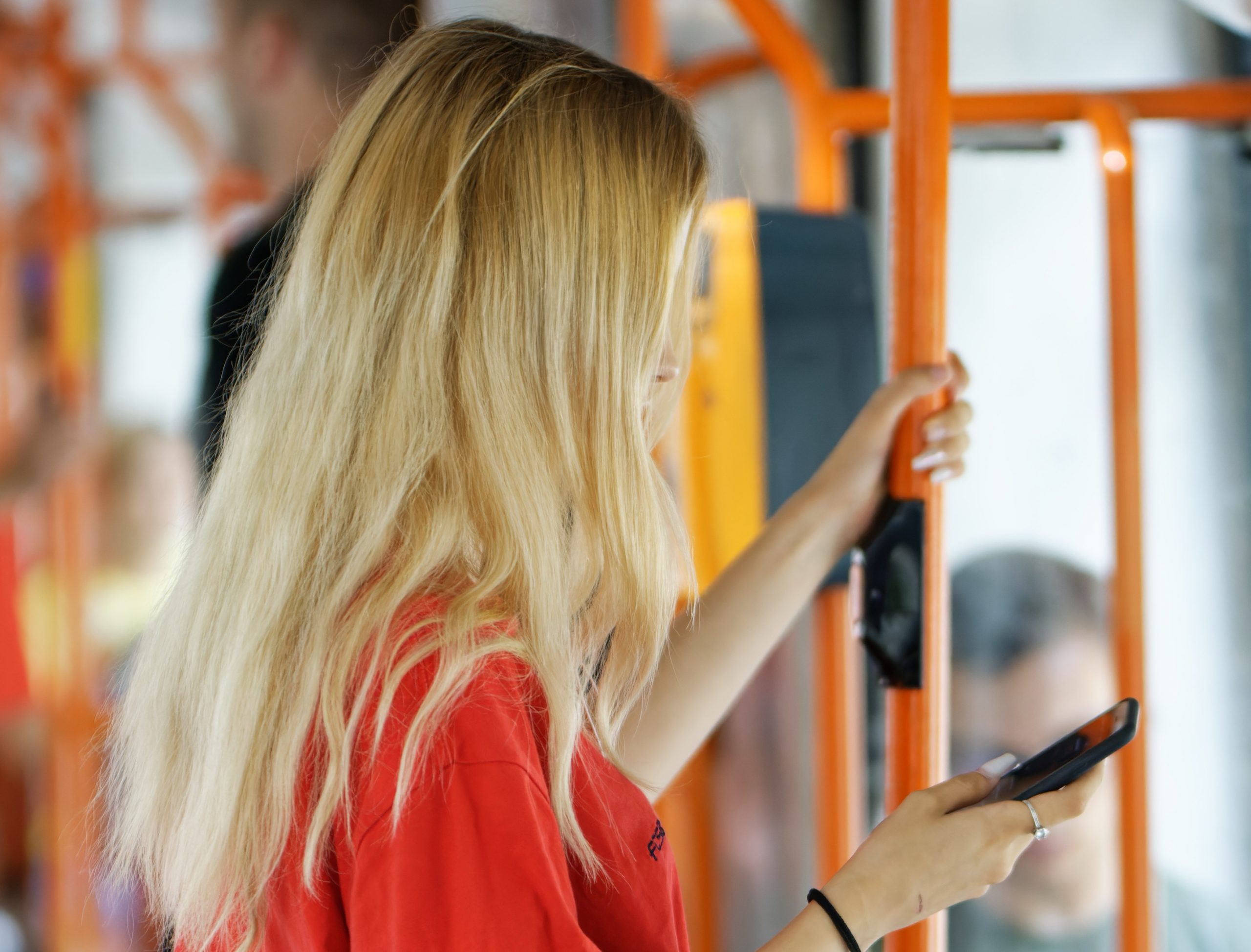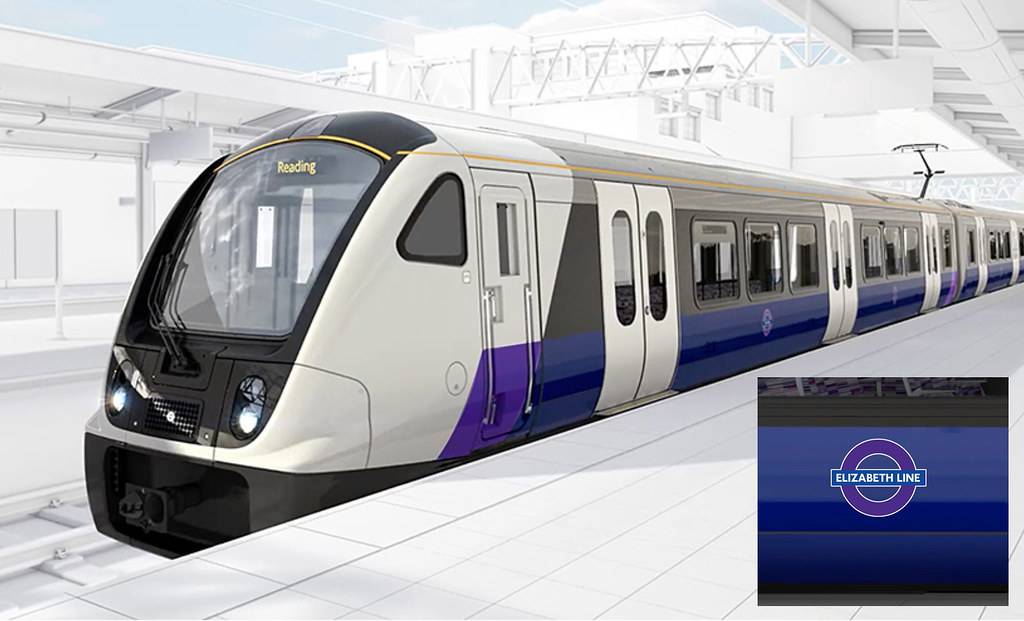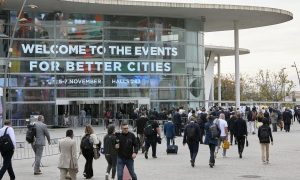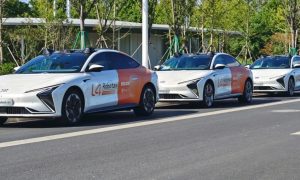LONDON – Following recent research indicating that a significant majority of tube passengers find loud music and phone conversations without headphones to be disruptive, Transport for London (TfL) has launched a new public awareness campaign aimed at reducing noise pollution on its extensive public transport network.
The initiative, which officially launched with posters on the Elizabeth line in late August, is set to expand across other TfL services this autumn. It highlights a growing tension between the increased digital connectivity on the move and the desire for a peaceful commuting experience in one of the world’s busiest capital cities.
“You might argue that in theory this disturbance is no different from overhearing people have loud conversations or being harmlessly drunk and boisterous,” wrote Hannah Ewens last year on The Guardian. “But it is different. That tinny quality to the noise, the abrupt stop and start of video and audio, the chaotic nature of each content type happening at once in the same tube carriage: it’s distracting and disorientating.”
The campaign comes as 4G and 5G mobile coverage continues to expand across London’s transport infrastructure, making it easier than ever for passengers to stream content and make calls while traveling. While this connectivity offers convenience, it has inadvertently amplified a long-standing complaint: the inconsiderate use of device speakers by a minority of customers.
Response to passengers’ complains
A new TfL survey, conducted in June 2025 among 1,000 adults in Greater London, revealed that a striking 70 percent of customers find music and phone calls without headphones to be a nuisance. This disruption is not merely an inconvenience; it can create an “unpleasant or even stressful environment” for others, particularly those with conditions such as autism, which heighten noise sensitivity.
Seb Dance, Deputy Mayor for Transport, emphasized the campaign’s core message: “The vast majority of Londoners use headphones when travelling on public transport in the capital, but the small minority who play music or videos out loud can be a real nuisance to other passengers and directly disturb their journeys.” He added, “TfL’s new campaign will remind and encourage Londoners to always be considerate of other passengers. However Londoners spend their journey, whether catching up on their favourite series or listening to music, we want everyone to have a pleasant journey.”
The campaign is a strategic extension of TfL’s existing #TravelKind campaign, launched in 2017, which promotes general passenger etiquette and mutual consideration among travelers. Beyond encouraging headphone use, the #TravelKind initiative also reminds passengers to “look up from their screens” to offer seats to those who may need them more.
The initial phase of the headphone campaign sees posters prominently displayed on the Elizabeth line, which serves an impressive 800,000 passenger journeys daily, making it the UK’s busiest railway. By October, the campaign’s reach will extend to include buses, the Docklands Light Railway (DLR), London Overground, London Underground (Tube), and London Tram services.
To amplify its message and incentivize behavior change, TfL has partnered with JBL, a prominent audio equipment manufacturer. This collaboration includes an Instagram competition offering a chance to win one of five pairs of wireless JBL Live 770 NC headphones. Participants are encouraged to engage with the campaign by liking the promotional post, following both TfL and JBL UK on Instagram, and tagging a friend in the comments.

Emma Strain, TfL’s Customer Director, highlighted the paradox of modern connectivity: “Better mobile coverage on our network means we’re more connected than ever, and while that means we can stream music and shows and make calls on the go, we must be considerate of others.” She reiterated the finding that even “just a small number of people not doing so can create an unpleasant or even stressful environment for others, with the majority of customers we asked agreeing that this is disruptive behaviour.” The campaign, therefore, serves as a crucial reminder for all to “put their headphones on if they don’t already, to give others the stress-free journey they’d expect for themselves.”
The expansion of mobile connectivity, while a catalyst for this new campaign, is itself a significant ongoing project for London’s transport network. Large sections of the Tube across central London now boast mobile coverage, with further work underway to bring it to major interchange stations, such as Green Park and King’s Cross St. Pancras, by the end of the year.
Recent expansions this summer included mobile coverage between Balham and South Wimbledon on the Northern line, as well as at Kennington, Oval, Tooting Broadway, and South Wimbledon stations.
TfL and Boldyn Networks are jointly working to introduce high-speed 4G and 5G mobile coverage across the entire London Underground, DLR, and Elizabeth line networks, as well as between Highbury & Islington and New Cross on the Overground line.
This ambitious project involves all four major mobile network operators in the UK: Three UK, EE, Vodafone, and Virgin Media O2 (VMO2), ensuring that customers can remain connected throughout their journeys across London’s extensive transport system.
The new campaign, therefore, represents TfL’s comprehensive approach to modern commuting: embracing technological advancements while proactively managing the behavioral changes they necessitate to maintain a positive and respectful environment for all passengers.















